The Truth About Chinese Interference in Canada |
Leon Lee
Chinese interference in Canadian politics. Hacking of Canadian databases by Chinese agents. Tiktok, a social media platform built by the Chinese government to brainwash our kids. Many of us today are justifiably very concerned about Chinese influence in our country.
But how much worse is government control in china itself. How do they recruit agents to infiltrate our country and how do they control them once they are here. Why do they want our data and what do they plan to do with it? Why are they after our youth?
These questions and many others are answered in two films from Canadian producer Leon Lee. Not documentaries as you might expect, but feature-length movies based heavily on fact and interviews with many of the main characters portrayed.
In Mind Wave, released just this past November, Lee tells a fictional but at the same time very accurate story of Chinese hacking in Canada, and of the extent the Chinese government goes to in their attempt to appear innocent.
In Unsilenced, Lee’s previous film from 2021, we’re given a picture inside China, where the government arrests, tortures and murders people in the cause of maintaining their control.
But as with all stories of persecution, heroes arise to fight for their rights and for the truth.
Leon joins me today to discuss his films, and to give us his observations on Chinese interference in Canada.
Mr. Lee’s films are available on Youtube for a very small fee, and I highly recommend them.
As Wang Weiyu, one of the main characters in Unsilenced says, “if we all seek the truth, insist on the truth and tell the truth, truth will ultimately prevail.”
Link
Mind Wave: https://www.youtube.com/watch?v=UKGfXucZBMM
Get the Truth! Exclusive Interviews and News that mainstream media won’t report. https://ironwiredaily.com
Protect Your Assets from the Coming Economic Collapse. Buy precious metals at wholesale prices right here in Canada. https://info.newworldpm.com/154.html You can even transfer in your RSP. New World Precious Metals. You will also be supporting our efforts to bring Canadians the truth. We do receive a commission on purchases made through our affiliate link.
Get Sound Financial Advice. Adrian Spitters is a personal financial planner and author who successfully predicted both the dot-com crash and the crash of 2008, and also has access to many investment opportunities that other financial planners do not.
Adrian Spitters, Financial Consultant
Financial Advice for the Coming Economic Collapse
www.adrianspitters.com
adrian@adrianspitters.com
(604) 613-1693
Find and Join your LOCAL Freedom Community. We are building in-person freedom communities across Canada at https://freedomcoms.org. Joining is free and only takes a minute.
Get a truly Secure Phone. Above Phone! Purchase price includes a 45 minute online personalized orientation session. Stop the government and corporations from spying on you. https://abovephone.com/?above=101. Use code IRONWILL25 for $25.00 off any phone.
Originally posted 2025-01-15 17:00:01.
3 Comments
Leave a Comment Cancel Reply
You must be logged in to post a comment.
(0:00 - 0:15) Chinese interference in Canadian politics. Hacking of Canadian databases by Chinese agents. TikTok, a social media platform built by the Chinese government to brainwash our kids. (0:15 - 0:56) Many of us today are justifiably very concerned about Chinese influence in our country. But how much worse is government control in China itself? How do they recruit agents to infiltrate our country? And how do they control them once they're here? Why do they want our data? And what do they plan to do with it? Why are they after our youth? These questions and many others are answered in two films from Canadian producer Leon Lee. Not documentaries as you might expect, but feature-length movies based heavily on fact and interviews with many of the main characters portrayed. (0:57 - 1:34) In Mind Wave, released just this past November, Lee tells a fictional but at the same time very accurate story of Chinese hacking in Canada and of the extent the Chinese government goes to in their attempt to appear innocent. In Unsilenced, Lee's previous film from 2021, we're given a picture inside China, where the government arrests, tortures and murders people in the cause of maintaining their control. But as with all stories of persecution, heroes arise to fight for their rights and for the truth. (1:36 - 2:04) Leon joins me today to discuss his films and to give us his observations on Chinese interference in Canada. Mr. Lee's films are available on YouTube for a very small fee and I highly recommend them. As Wang Weiyu, one of the main characters in Unsilenced says, if we all seek the truth, insist on the truth and tell the truth, truth will ultimately prevail. (2:11 - 2:15) Leon, it's a pleasure to have you on the show. Thank you, Will. Thank you for having me. (2:16 - 2:32) I have to say, I thoroughly enjoyed your films, especially Unsilenced and Mind Wave. And I don't mind saying it brought me to tears several times. You've done a fantastic job of portraying these very heroic people and what they had to face to bring the truth out. (2:33 - 3:29) So I wanted to ask, because you came to Canada, you said in 2006 from China, you were a young man What prompted you to leave China and come to Canada and then subsequently produce these films? I came to Canada to study and I remember vividly one of my friends showing me a video of the Tiananmen Square Massacre in 1989. And my first reaction was anger, not towards the Chinese government, but towards my friend. I asked him, how can you believe in this propaganda fabricated by the CIA to defame our motherland? Just because you are outside of China now, how can you just forget about your heritage, your root? My friend was rather patient with me. (3:29 - 3:49) He basically said, take it easy, you know, you're a smart guy. Go back and do some research and then we can talk. Once I started looking into this 1989 Tiananmen Massacre, I quickly learned that whatever I learned in school back home in China was completely wrong. (3:50 - 4:13) I was told no single student died in Tiananmen Square. No single student died. And more than that, I learned that almost everything, all these major historical events I learned back in school in China were some sort of a version that's far away from the truth. (4:14 - 4:48) For example, I was told the United States and South Korea invaded North Korea first. And that's why China had to defend North Korea. So imagine my shock, right? And then I started asking myself the question, if I had this kind of reaction because of all the brainwashing, probably many other people will have the same experience. (4:48 - 5:27) What if I can do something about it, right? And then I learned about the allegations of forced organ harvesting in China. To my horror, the Chinese regime had been harvesting organs from prisoners of conscience, mainly Falun Gong practitioners, but also Tibetans, Uyghurs, political dissidents, underground house church members in the hundreds of thousands. And that's when I started to make a film about it. (5:27 - 6:02) My first documentary titled The Human Harvest documented two brief Canadians, David Matas and David Kilgore, their investigation into these allegations. And that really opened the door for me to dig deeper into human rights atrocities in China, allowed me to get in touch with many heroic individuals who risked their lives to blow the whistle and expose the crimes that happened in China. And that's how one thing led to another. (6:03 - 6:16) In the end, I made Mind Wave last year. Yes. Now your films touch heavily upon censorship, especially in China, but here in Canada, now under Trudeau's government, we've had a number of censorship bills passed and proposed. (6:17 - 6:47) And I noticed something interesting when I was doing the research for this interview. I watched your films on YouTube, but first I checked on Amazon. And while they're available on amazon.com, they're not available on amazon.ca. Are you being censored here in Canada? In that particular instance, I'm not sure because we do have a distributor and they may have sort of scheduled the release in different territories. (6:47 - 7:08) So I'm not quite sure. But I know for a fact that China has been targeting me personally and my productions. Canada is the envy of the world in terms of independent filmmakers, because we have a robust system in supporting artistic works in this regard. (7:10 - 7:46) And one of the agencies that supports these kinds of works received a letter from the Chinese embassy saying that you guys have been funding anti-China work. Without naming my names, but obviously they're referring to some of my work. And the head of the agency actually showed the letter to me, telling me what do we do about this, right? To their credit, they actually stood up to the Chinese embassy and told them in Canada, we do have freedom of speech. (7:47 - 8:01) We fund the works based on these criteria. And the actual content is not part of the criteria. So they have creative freedom to do whatever they need. (8:01 - 8:07) So they continued funding my work. So that's one of the examples. Okay. (8:07 - 8:19) Now it's no surprise that the Chinese government would want to censor your work. It certainly lays them bare before the world and the kinds of things that they're up to. And I asked you just prior to the interview, are you concerned for your safety? And you said, no. (8:19 - 8:46) And I have to say that answer surprised me because your films make it very clear that the Chinese government will not hesitate to kill people to silence them. Why are you not concerned for your safety? Well, I have to admit in the very beginning, I did not really know what I was getting into. I thought these are urgent human rights atrocities and they need to be exposed, that the world needs to know. (8:46 - 9:10) I obviously knew they were not welcomed by China, but I did not know what kind of reaction I would expect. But over the years, I've encountered my fair share of intimidation and interference from the Chinese regime. And I've learned several things. (9:11 - 9:32) Number one, whatever I experience here in Canada is really nothing compared to the things that people in China experience. So if they can open up to me, if they can tell me their stories and they can tell their stories to the world, there is no reason for me not to do it in Canada. Yes. (9:32 - 9:57) And secondly, once one of the official Chinese media published an article about me and officially labeled me as a traitor. And in the comment section, which is heavily moderated, there was a comment saying, Leon Lee's days are numbered. And I did not panic after seeing the comment. (9:57 - 10:15) I actually had an epiphany in the sense that if you think about it, everybody's days are numbered, right? Whether you know it or not. And if my days are truly numbered, I should make sure every day counts. And that was almost 10 years ago. (10:16 - 10:31) So I think if we, in a way, the CCP is like a bully. You deal with them the same way you deal with a bully in school. You stand up to them and you tell them, I'm not afraid of you. (10:32 - 10:50) Uh, if you don't want to say, if you don't like the way, the things I say, then they stop doing the things you do. All right. Now it seems to me though, that the, you did probably with a good reason, have to self-censor somewhat in your films. (10:51 - 11:11) In Mind Wave, you've got a fictitious app called VidTalk, which to me at least appears to be a pretty good stand in for TikTok. In Unsilenced, Daniel, the reporter, he's a composite character, but he works for the Chicago Post, which is a fictitious paper. It was a long time ago, an actual paper, but not anymore. (11:12 - 11:50) And I understand that you were not able to get permission from the various media outlets, whose reporters that Daniel was based on to use their names. So to what extent are you having to censor yourself? And to what extent are you being, I guess one of the questions I would ask very directly is, why did these media outlets not want you using the names of their reporters when they exposed what was happening there? Right. It is no secret that a lot of the so-called mainstream media has comprehensive business ties with China to various degrees. (11:51 - 12:14) New York Times, for example, we know that their then publisher, I believe in 2001, met with then President Jiang Zemin in China. And shortly after that, they launched the Chinese language version of the New York Times. And it's one of the very few Western media whose websites are not banned in China. (12:15 - 12:47) So now, after that, you can imagine that they are not actively looking to expose human rights atrocities in China. There was a reporter who worked in New York Times who testified in the China Tribunal in London that she was pressured by the editor not to continue working and investigating in false organ harvesting in China. They essentially shut her reporting down. (12:50 - 13:05) So that's one reason. The other reason is more practical, is in order for any films to be distributed, you need an E&O insurance. Otherwise, no distributor or platforms will put on your films. (13:06 - 13:22) And no insurance company will sell you the insurance if you use their real name without permission. So that's why practically, and sometimes it's even more fun to let the viewers make their own decision. And they look at the things and draw their own conclusion. (13:23 - 13:38) Are they talking about a particular platform? Or is it completely fictitious? Right. As my own take on VidTalk, just my own take on it. Now you've spent at this point in time, I guess about half of your life living in China, half of it living here in Canada. (13:39 - 14:12) And if you would ask any other Canadian five years ago, 10 years ago, is this a country that has free speech? There probably would have been an unequivocal yes. But I made reference earlier to some of the censorship bills that are coming from Trudeau's government. How would you compare Canada today in terms of censorship in this country to censorship in China? There's no denial that many Canadians feel the freedom here is eroded over the years. (14:13 - 14:33) There's no question about that. But I have to say, it's nothing compared to what's happening in China. There are over 2,000 newspapers, hundreds of TV outlets, radio stations, every single one of them is controlled by the Chinese government. (14:33 - 14:55) The editors there, working there, receive sometimes over a dozen, sometimes dozens of directives from the propaganda department. By the way, it was their official English name, but then they realized it's not the best name. So they changed it to Department of Communication and Publicity. (14:56 - 15:10) But in Chinese, it is still called the propaganda department. And they control the details of the reporting. Or even to the extent of, these are the posts that the comments should be disabled. (15:11 - 15:25) These are the posts that comments should be directed to a certain way. And for those who dare to speak up, the police will come in and arrest them and send them to prison. So that's truly a totalitarian regime. (15:26 - 15:33) And I have to, I'm sorry, keep going. Yeah. Of course, in Canada, we're nowhere near there. (15:33 - 16:01) All the more reason to be on alert, to know that the things we take for granted here are things that people pay a dear price to fight for in other places. And I have to assume that in China, there is no independent media such as myself here in Canada. I know some people who try very hard to have a voice in China. (16:02 - 16:20) It's either a very limited time, or eventually they have to change their stance. To do this long-term like you, what you've been doing would be unimaginable. And I think that we have to, I see your films also as a cautionary tale. (16:20 - 16:37) Because you do portray very well, especially in Unsilenced, the extent that people had to go to, to get the truth out when it's being completely censored online. It's not like they could do what I'm doing and sit here and do an interview and talk about this and put it out. That obviously would be censored and they'd be arrested. (16:38 - 16:55) They were tying pamphlets to balloons. They were secretly putting them into people's mail slots because that was the only thing they could do. And I myself am becoming quite concerned the direction that Canada is going in because there is a lot of censorship of the truth happening here now. (16:56 - 17:24) Our mainstream media is owned and controlled by the government. Trudeau gives them over $2 billion every year. Do you have concerns about the direction that Canada is heading in? Or do you think we're going to turn this around and return to a free society, free speech? I think if we look at the world as a whole, and in particular in the US, there has been some promising developments. (17:25 - 17:44) Even Facebook has announced that they are revamping their fact-check mechanism. It's clear that they realize that they have gone too far. And I think in Canada as well, people have realized... It's funny. (17:44 - 18:00) Again, it's sometimes things you take for granted. It's only when you risk losing it, you realize the importance of it. So overall, I think as long as you have enough people realizing the trend, people will take action. (18:01 - 18:26) And in that regard, it's also important to... which is also the theme that touched in my wave, about China's interference in Canada. The political interference, meddling in our elections, influencing public opinion through digital platforms. I think there's also positive development in that regard. (18:27 - 18:39) So it won't be easy. But eventually, I think we're on the right track. I found your portrayal of some of the Chinese agents to be exceptionally three-dimensional. (18:39 - 19:08) Certainly there's people like Secretary Yang, who's very much part of the party and the MSS, and probably a true believer in what he was doing. But you also had other characters like Min, Daniel's assistant in Unsilenced, Sarah in Mindwave. And they were working for the Chinese government, but you portrayed them as almost very sympathetic characters who were very conflicted about what they were doing. (19:08 - 19:33) And I have to feel that that's probably fairly realistic a lot of the time. And my question then would be, how does the Chinese government recruit such agents as that? And how do they then control them? And especially when they're no longer in China? That's a great question. China operates probably one of the largest and most sophisticated intelligence networks in the world. (19:34 - 19:58) The sheer number of people involved in these operations is just astonishing. And of course, you have your special agents that are trained by the Ministry of State Security, MSS, or the various military intelligence organizations in China. But they also use a lot of people who study and work in Western societies. (19:59 - 20:20) And their task is to get a particular piece of information, or to influence a particular candidate. In this case, many of them do it out of loyalty to their homeland. Many of them are also brainwashed. (20:21 - 20:40) So once they come out and they get in touch with the real world, a lot of them change their mind. Even for these professional intelligence officers, I happen to know a few of them. I'm also in touch with people inside the party in China. (20:41 - 20:54) And my sense is that the CCP is losing control. Because there is only so much brainwashing you can do. Eventually, people will see through the lies. (20:55 - 21:28) So a lot of them, as soon as they come to the West, they actually take some actions to prepare for their eventual exit from these organizations and then come loose. In the meantime, you do have quite a bit of people who are still, I wouldn't say they're loyal to the Communist regime. They're loyal to the money, to the interests, to whatever personal gain they're getting. (21:28 - 21:54) And that's why we still need to be very cautious and take action. There was a number of quotes from characters in your films that I found very striking, and I want to read a few of them. Secretary Yang, in Unsilenced, went very early on in the movie, he's talking to his assistant about the need to shut down the Falun Gong movement, which of course is not a religion, it's a philosophy. (21:55 - 22:40) And he said, if Falun Gong wins the people's hearts, who will be left to follow the party? Could you comment on, because it seems to me there's worlds of meaning in that statement alone, and you've just referenced the fact that you feel that the Communist party in China is failing. What's the threat to their control there with this philosophy of peace and truth? That's a fantastic question. Now, in terms of the persecution against Falun Gong, Falun Gong, of course, is a spiritual practice that centers around three tenets of truthfulness, compassion, and tolerance. (22:41 - 23:17) The Communist party, on the other hand, thrives on propaganda and violence. So if a large population in China actually insists on telling the truth, as opposed to the lies that the government wants them to tell, you can imagine the horror of the Communist leadership. And despite the, I think now, 25 years of brutal crackdown against the Falun Gong, these people remain peaceful. (23:18 - 23:45) And it also sets up an example on the essence of traditional Chinese culture. Which the Communist regime had tried really hard to eradicate during the Cultural Revolution and afterwards. So if the Chinese people awaken to their roots, to the essence of traditional Chinese culture, they will see through the lies of the Communist party. (23:45 - 23:56) They realize that this is not the real China. This whole philosophy, this whole movement, Communism was not born in China. It doesn't belong to China. (23:57 - 24:36) So I think that's also the other reason they're really threatened by Falun Gong. If I may go to even the broader context, that's also the reason why when China targets Meadows elections in Canada, for example, they started with targeting writings with large Chinese Canadian population. Because if the Chinese diaspora here can live freely and prosperously, they enjoy all the benefits of freedom while maintaining their cultural identity. (24:36 - 25:02) It challenges the Communist party's narrative that their way of governance is superior and unnecessary for the Chinese to thrive. And the Chinese people here all have connections back to people in China. So I think that's also a reason why the Communist regime is threatened by the very existence of our way of life in the West. (25:02 - 25:42) In the end, when we see China as the grand plan for the world, on the surface, one may say, this is your standard geopolitical maneuvering. But at the core, really, we're talking about competing visions for a human society, competing visions for world orders. And the existence of democracy anywhere is a threat to totalitarian regimes like the Chinese Communist party. (25:45 - 26:18) You showed some fairly disturbing scenes in Unsilenced, and I felt that you did it very tastefully. You showed the absolute minimum I felt that was necessary to get across the impact of the brutality of the police, of the MSS, when they were beating, torturing the people that they wanted to get information from. Should I assume that that's fairly realistic, that that's the kind of thing that happens there? We actually have to tone it down in order not to change the film from a thriller to a horror film. (26:20 - 26:51) But everything depicted there are based on true accounts of prisoners. The brutality is just incredible, yeah. And what worries me is, whatever, I've interviewed hundreds of people who have been tortured by the Chinese regime, and my sense, my real sense is that we have only touched the tip of the iceberg. (26:54 - 27:06) I wanted to read another quote. And once again, this is from Director Yang, with the MSS. And in this case, we're returning to their interference here in Canada. (27:07 - 27:20) And once again, did you write the script? Yes, yes. In my wave, I co-wrote it with another writer. Okay, this is very, very perceptive. (27:21 - 28:01) He says, The West, they obsess over their freedom, freedom of speech, of information, but where does it lead them? Their precious social media teeming with lies, anti-science, insurrection, all thanks to their so-called freedom of information. They criticize us for controlling information, but their openness is the very thing that allows us to infiltrate their flawed electoral system. Given the confirmations we've had now of Chinese interference in our lives, in our elections, what are you hoping people would take away from that statement? Their openness is the very thing that allows us to infiltrate their flawed electoral system. (28:04 - 28:27) My personal impression is that people don't take this, the allegations of foreign interference, seriously. It seems like people feel that, you know, we have a robust democracy. What's the harm? Of course, they're trying to shape our perceptions. (28:27 - 28:57) Really, what's the harm, right? But it's really alarming in the sophisticated ways that China has been deployed for the middle of our elections here. It may start with several MPs here and there, but very soon, I think it's going to expand. And even worse, it's not about the results of a particular election. (28:57 - 29:24) I think in the end, their goal is to sell doubt to democracy itself. And that, I think, is a real danger. I'd like to talk briefly about TikTok, and not in any reference to your films, but just your knowledge of that company, having come from China, knowing that it's a Chinese company, because I've heard some things, and perhaps you can confirm or deny this. (29:25 - 29:43) Now, we know that the Canadian government is shutting down TikTok here in Canada. And one of the reasons they're doing this is because it was found to be having a very negative effect upon youth, that they were being constantly bombarded with extremely negative messages. But I've heard that in China, TikTok is actually the exact opposite, that it's full of positive messages. (29:44 - 30:18) Do you know anything about that? Is there any truth to that? The people who are, let's say, moderating content for TikTok, and people who work on the Chinese TikTok, Douyin, are separate teams, and they have separate goals. So it's not surprising at all that they have different agendas in terms of the content. Your film, Mindwave, does talk a great deal about hacking, and Chinese hacking into Canadian databases. (30:19 - 30:28) And you used a fictional company in there, but there's certain things about the hacking that are fairly obvious. Why would they want information on our government? Fairly obvious. Why would they want financial information? Fairly obvious. (30:29 - 31:07) But a lot of it seems to be targeted at just getting information on individual Canadians. Why do they want that information, and what would they do with it? Well, we know that large companies are trying to get as much information as possible, right? They want to know the behavioral patterns, they want to know where you are, they want to know the websites you browse, they want to know who you are in order to sell your products. Imagine the same information, and even more, that's being accessed by a foreign government, who obviously don't have our best interest in heart. (31:08 - 31:24) It's a goldmine. It can be used for large-scale intelligence operations to shape public opinion. It can be used, and once public opinion is shaped, then it will affect what kind of people we elect, what kind of policies we enact. (31:28 - 31:44) It all feeds to the long-term goal that China has to reshape world order. And also, of course, it will impact our way of life. So let's put it this way, to make it easier to understand. (31:46 - 32:18) Imagine every one of us keeps a detailed diary of our thoughts and our behavior, and an adversary regime gets their hands on millions of diaries. And they know every one of us better than we know ourselves. And the question is, is that harmful? I mean, how much more damage could that do? It's beyond our imagination. (32:19 - 32:29) Anything is possible in that regard. The answer is, the better they can understand us, the better they can manipulate us. Absolutely. (32:29 - 32:36) Yes. The better they can manipulate us without us even realizing that. Yes. (32:36 - 33:08) In your films, you, out of necessity, had to portray a number of Chinese people in a very negative light. Did you have any trouble finding actors willing to play those roles? Not necessarily because they're playing a negative character. But we had tremendous difficulties finding actors of Chinese origin to even appear in the film at all. (33:10 - 33:36) Some actors who worked with me before, their families were visited by the local authorities. They were asked to report on me, on the production, on why they were involved in anti-China propaganda funded by the West. But we also have people who appeared in my film, who went back to China and actually enjoyed a successful career. (33:41 - 34:12) I think China understands that I am the key creator behind these films, and the actors are just doing a job. One day they can be playing the king, the next day they can be a homeless person, right? So really, what's the big deal? So a lot of them really come from fear from the actors. A lot of Chinese speaking actors, I would say many of them still dream one day of achieving stardom in China. (34:13 - 34:28) Okay. In addition to being a journalist, my wife and I also founded a freedom organization several years ago, Strong and Free Canada. And some of our original supporters were Chinese people, people who had come to Canada to escape these kinds of totalitarian regimes. (34:28 - 34:48) But I'm also aware that there are unfortunately some Canadians who, given the negative press that the Chinese government and Chinese agents have had, they look at any Chinese person with suspicion. And you did a wonderful job of presenting some very heroic and sympathetic characters. And of course, those exist in all cultures. (34:48 - 35:38) And they especially come to light when you put them under this kind of totalitarian threat. Are you hoping that perhaps these films will perhaps, how to express this, tone down any racism that might be directed towards Chinese people in Canada? I'd say most people would come here precisely because Canada has freedom, right? How come they're not immigrating to North Korea or some other totalitarian countries? So deep down, they understand why this is important. I still encounter people in the Chinese community who are advocating for the Chinese regime. (35:39 - 35:58) And a very simple question to them is, why don't you go back? Right? And they would just shut up. So I think the vast majority of people in the Chinese community, number one, most of the time they are silent because of their family connections in China. The threat is real. (35:59 - 36:20) If they have aging parents in China and the police come and knock on the door, they are terrified, right? If they have businesses in China, they know the repercussions. So most of them are silent, but the vast majority of them understand exactly why they immigrate here. They are not on the same boat of the Chinese Communist Party. (36:22 - 36:46) And even people inside China, when they first started making films like this, I don't get a lot of positive feedback from my viewers in China. Nowadays, I was told some of my films were among the most pirated political films in China. So I do have a large distribution there. (36:46 - 37:15) There's no income. So almost every week, I receive emails from Chinese viewers telling me how the films opened their mind, changed their mind, how they started asking their family and friends to watch these films. In my last film, it was shown in Vancouver Film Festival, and there were two Chinese girls, I think teenagers. (37:16 - 37:36) They waited until everybody's gone, and they approached me and they said, we are exchange students from China, and we are going back next week. And I don't know where this is going, right? Then they said, we really loved your film. We had no idea this is going on in China. (37:36 - 37:48) The last two hours was the highlight of our two months here in Canada. We will go back and tell everybody what we learned. Thank you for making these films. (37:49 - 37:57) It is moments like that that really inspire me. Oh, this is making an impact. This is really worth the efforts. (37:58 - 38:24) So if people inside China, despite all this censorship and brainwashing, can learn really what's going on, I think it's going to help people outside of China as well. And that's something that struck me in your film. There was a few very well done scenes that were, I think a lot of people just take them as sort of setting the scene, but when you watch the characters, you can see that they're just living their lives normally like we do here. (38:25 - 38:45) And I would think that other than perhaps suspecting that their access to information is being curtailed, most people in China are, yes, they're just living their lives. And the kind of things that you're exposing in these films, they're completely unaware of them. But that seems, I have two thoughts on that. (38:45 - 39:17) The first is to question how you can live in that kind of a totalitarian society and not really understand what's going on around you. But then at the same time, we could talk about things that have happened here in Canada in the last few years, and the vast majority of Canadians are completely unaware of it. So these regimes, how do they balance letting people just sort of live their lives, they probably don't end up with a mass revolt, and at the same time maintaining control? That's a great question. (39:18 - 40:02) In the Chinese Academy of Social Science, there's a working group consisting of the top psychologists, social science experts in China, and their mandate was to carefully manipulate the public perception of the Chinese regime, but also overall about life in China and life outside of China. So for an ordinary Chinese citizen, it would be very difficult to even realize the extent of brainwash they've been subject to. I'll give you one concrete example. (40:02 - 40:18) Every night at 7 p.m. China Central Television, there's a flagship news program that's viewed by millions of people in China, hundreds of millions. And even people in China know it's propaganda. That's fine. (40:19 - 40:41) It's okay if it's propaganda, but what do you watch, right? Sometimes you still have to watch it. And the number one priority, of course, is to sell the idea of how great the party leaders are, how great our lives are here in China. But they would also put a significant amount of time showcasing how bad things are outside of China. (40:42 - 41:03) If there is a natural disaster in America, if there is a school shooting somewhere, if there's anything happening outside of China, oh my god, you will have extensive coverage there. In the very beginning, it was quite rude. But nowadays, it's very sophisticated. (41:04 - 41:37) For example, if there is an election in Taiwan, instead of telling the people, election is bad, democracy is chaotic, they would put a small article about election, but a bigger picture about parliamentarians fighting physically in the Taiwan parliament. And the natural conclusion that you draw after reading all this is, oh, maybe it's not that good after all. Look at it, right? It's chaotic. (41:38 - 42:12) So they are able to still maintain control thanks to their very sophisticated way to control what people know through media, through the great firewall, and in many other means. And that's why it's, whatever I hear from a Chinese viewer who have taken the right pill, if you like, I'm very excited. I'm very excited. (42:12 - 42:29) There is a major stock market crash coming that will rival the crash of 1929. But there is a way to not only protect your wealth, but profit in the coming crash. The stock market chart today looks exactly like the charts prior to October 1929. (42:30 - 42:49) Banks are disastrously over-leveraged, and several major US banks have already failed. And the CDIC, the Canadian Deposit Insurance Corporation, doesn't have nearly enough money to cover depositors. If you have money in the bank or the stock market, it is time to get out. (42:50 - 43:15) Governments and corporations around the world are buying up precious metals in record amounts because they know the coming crash will make their other assets nearly worthless. You can buy precious metals at wholesale prices through New World Precious Metals at commissions substantially below other Canadian brokerages. And you can even transfer savings in your RRSP tax-free. (43:16 - 43:35) To get more information, use the link below this video to contact New World Precious Metals. They will answer any questions you may have. You may also wish to contact Adrian Spitters, a personal financial consultant who successfully predicted the stock market crashes of 2000 and 2008. (43:36 - 44:12) You will find Adrian's contact information below as well. Finally, if you want more information on the coming crash and what you can do to protect yourself, your family and your assets, see my most recent quarterly update with my team of financial experts at ironworeport.com. By clicking the link below to contact New World Precious Metals, you will also be helping to support our efforts to bring Canadians the truth as we are an approved affiliate partner. Now you mentioned earlier getting feedback from pirated copies of your movies circulating through China. (44:12 - 44:45) What kind of feedback have you gotten from natural-born Canadians, Americans, who are suddenly having their eyes open to what's happening there? Oh, very positive feedbacks. They are shocked by what's going on in China, not only because of the sheer brutality from the Chinese regime, but more importantly, how brave the Chinese people are. This is one of the least reported aspects of China. (44:47 - 45:37) Most reporters would do an article about Chinese economy, maybe some political infighting, but the real story in China is the silent, heroic movements that's happening with the people who are effecting change every day. One example is whenever I tell people this, they are in shock. What if I tell you over 400 million people have actually renounced their membership to the Chinese Communist Party, the Youth League, or the Youth Pioneer Team, which are affiliated organizations of the Communist Party. (45:37 - 46:01) It's shocking, isn't it? It is. I think in 2004, there was a website that was set up, and they basically said, if you want to renounce your membership, come to the website, and just say, I'm no longer a member of the party. You can use your real name, or you can make up some names to protect your identity. (46:03 - 46:21) I have to admit, in the beginning, I did not take it seriously. You know, it's a website, right? But when I realized the people who went on there exceeded 100 million people, that really shocked me. And the last time I checked, it was over 400 million people. (46:22 - 46:42) Some people would just say, one statement, I denounce the party. Some people would go to write pages of essays, starting from how the party slaughtered their grandparents, the Cultural Revolution, how they are awakening to the truth. It was really moving. (46:43 - 46:51) And quite a few people actually used their real names. But there's nothing the party can do. Because the party started cracking down on this. (46:52 - 47:05) Yeah, and they have to advertise, oh, there's a website, people can do this. More people will go there and do it. One day, this is largely ignored, never even reported in the West. (47:05 - 47:18) But one day, there will be a change in China. And people will be just in shock. Oh, what happened? And your viewers will know what happened. (47:19 - 47:44) Because people are desperate for change in China. Very few of them speak publicly, but almost everyone is thinking about it. Do you hope that your films might have an impact on international sanctions against China over their human rights abuses? Some of my films have played in parliaments worldwide, and I got a chance to speak to lawmakers about these issues. (47:47 - 48:12) What I learned is that many of them told me, you know, you read the report, it's dry, it's this thick, and many of them can't even read the whole report. But when you tell them a compelling story, they really understand what's going on. I think there are a few cases right after the screening, shortly after that, there were bills being proposed by lawmakers. (48:13 - 48:40) So in that sense, I think it's really helpful. Of course, there are many other people doing the same thing, you know, or in different ways helping to bring attention to human rights atrocities in China. But I do believe the power of cinema, the power of story, and if enough people get a chance to really know what's going on in China, I think change will come sooner. (48:41 - 49:10) William, I was extremely impressed with the quality of your films, given that they had to have been produced in a very small budget. What did it cost to produce Mindwave and Unsilenced, and how did you finance the films? Well, as I mentioned earlier, in Canada, we are privileged for some of the support systems that we have, different grants and tax credit we can tap into. But, you know, well, I'm proud of the production value that we are able to achieve. (49:11 - 49:55) There is no denial that this is, these are all produced in a shoestring budget. Thanks to a lot of the cast and crew members who came on board knowing that we would pay them very little, but they came on board because they've been doing a lot of, you know, big productions fancy productions, but perhaps stories that don't have such a human connection, right? So, they're happy to support, and they bring a lot of resources they have. And so that's why we're able to get these films done, sometimes with amazing locations. (49:58 - 50:10) But I would love to have more money, to be sure, to be clear, to produce better films. Well, I certainly hope that you do. And as I said, I was very impressed with these ones. (50:10 - 50:23) I came away from watching them though, with a personal question, just as a viewer. In Unsilenced, we do get something of an explanation for why Min, Daniel's assistant, was working with the government. They threatened her at one point. (50:24 - 50:56) But in Mindwave, you never really explained why Sarah was an agent. Was there a backstory that got cut there? Or is it just left to the viewer to try to figure it out? Well, Sarah mentioned when she was in university, she studied international relations and computer network. A lot of people studying international relations in college are monitored by the Ministry of State Security. (50:56 - 51:19) And some of them are tapped by them to be recruited and working for them. In this case, at least in this particular story, Sarah was one of them. And perhaps it wasn't abundantly clear to the audience. (51:19 - 51:30) There was a subtle context there. Now, you made reference to the Chinese regime is falling. They're losing some of their power. (51:31 - 51:49) But another question I came away with, and you did this very poignantly at the end of Unsilenced when you had the real Wang Weiyu make a statement at the end of the film. But there's a suggestion at the end of the movie that he was being led off to be executed, which clearly didn't happen. He had his sentence commuted to eight years and then eventually was released and allowed to leave China. (51:50 - 52:22) But given that the films reveal very clearly that the Chinese government, the MSS, the Ministry of State Security has absolutely no issue whatsoever with killing people to silence them. Why would they let him walk away? And why would they let him leave the country? Why wouldn't they just kill them? Right. Well, the same question can be asked, why are they in prison, all these political prisoners in China, as opposed to killing everyone, right? It's a careful balance not to make it a bigger issue for international community. (52:23 - 52:52) One of the things that the Chinese regime is really, really afraid of is actually international pressure. Because they want to establish themselves as a legitimate government, although they're having no election whatsoever. And if the international community is drawing hands to demand China stop persecuting their own people, China will actually stop persecuting their own people. (52:52 - 53:06) Because persecuting their own people is not their goal. Maintaining power is their goal. So if that is threatened, then they will do anything to protect their own power. (53:07 - 53:44) And which, you know, leads to another question, is why largely the international society turned a blind eye on all these atrocities in China, right? So, there is that. There is also, in Wang's case, for example, he has received international attention. And I bet the calculus is, you know, why would I kill him and have another round of publicity? So in that case, maybe they spare his life. (53:45 - 54:08) In terms of how he's able to get out of China, I think he shares a similarity to many other people I interviewed who were able to get out of China. Even the people if you look at the stories of the KGB, you realize they're almighty KGB, they're powerful. But they are, at the same time, it's a big bureaucracy. (54:08 - 54:21) And not everyone working there is highly motivated to do a good job, to be honest. You know, some of them just slack off and just get by. So, that's one reason. (54:21 - 54:35) The other reason is, in Wang's case, now I think I can say this, because people involved are have passed away. Some people helped him. Some people helped him to get out. (54:35 - 54:56) And because of their connections, that he was able to escape from China. At the end of Unsilenced, Secretary Yang, you show him being arrested. He was the one who was tasked with shutting down Falun Gong and suppressing what the government was doing in terms of the brutality against the people who were practicing it. (54:56 - 55:21) Was that actually factual? I'm not sure Yang was his actual name, but was that person actually arrested at that point in time? Oh, yes. The security czar, Zhou Yongkang, was a member of the standing Politburo in China, one of the seven people, you know, the top of the top. He was arrested. (55:22 - 55:41) Many, many senior CCP officials were arrested. On corruption charges. But the real reason, they could be scapegoat or maybe the top, the secretary general somehow views them as an enemy, right? As a threat to their own power. (55:42 - 56:05) Even the vice chairman of the military commission, central commission of the PLA, at least three of them now have been arrested. So the battle inside the party is fierce. Almost every week, you see people being arrested for various reasons. (56:06 - 56:23) And now, Xi Jinping is just paranoid. He is truly paranoid. Anybody, he started looking at ancient prophecies to try to identify who who might be the next traitor. (56:24 - 56:32) Okay, that seems a little unhinged. All right, last question. And I made reference to this earlier. (56:32 - 57:07) You did this wonderful job when you had Wang Weiyu, the real Wang Weiyu, come and make a statement at the end on silenced. And he finishes that statement by saying something that when I heard it, I thought this almost has to be the mission statement. For Leon Lee, he said, I believe that no matter how powerful lies are, if we all seek the truth, insist on the truth, and tell the truth, truth will ultimately prevail. (57:10 - 57:47) It's the very question I seek to explore after interviewing so many people with incredible, incredible stories. Ask them how come you can get through this, right? In my documentary letter for Ma Sanjia, the protagonist was subject to terrible, terrible torture for years. And all the interviewees, and in the end, what they were telling me is they believe in the power of truth. (57:48 - 57:59) At the end of the day, people know the truth. They will see through lies. And no amount of propaganda manipulation will be effective anymore. (58:01 - 58:22) And that's why, just like what you were doing with one interview, one piece of article at a time, I'm doing one movie at a time, one story at a time, tell people the truth. And you're doing a fantastic job of it. Folks, Leon's movies are available on a number of different platforms. (58:22 - 58:29) I watch them on YouTube, where you can rent each of them for just a few dollars. Well worth your time to watch them. Leon, thank you so much for your time today. (58:30 - 58:31) Thank you so much.
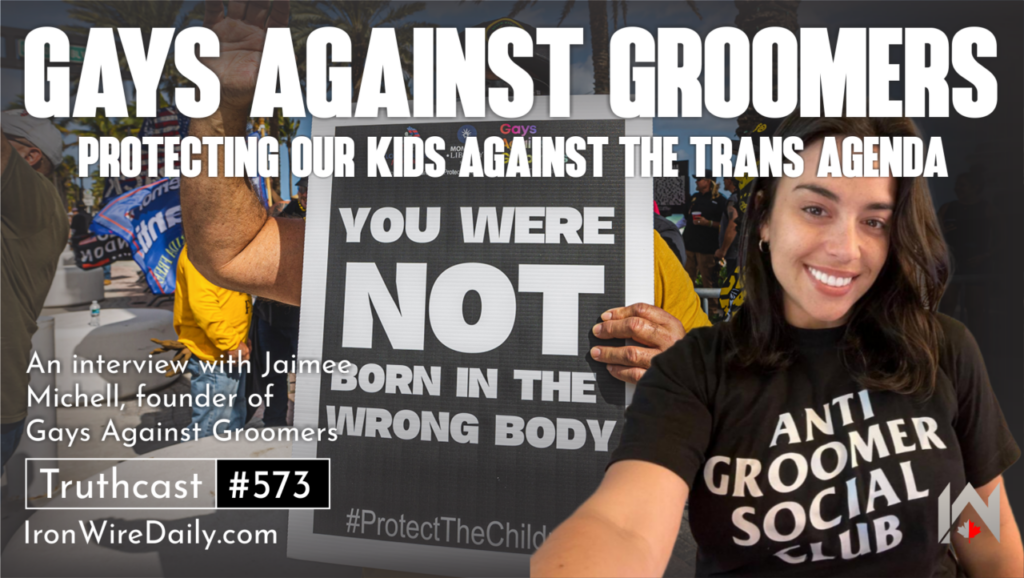
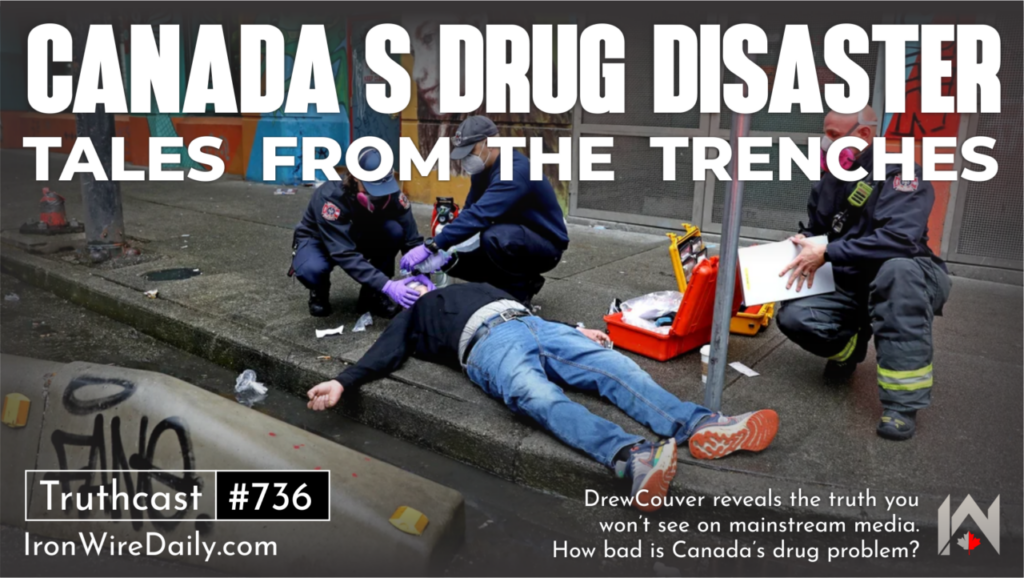

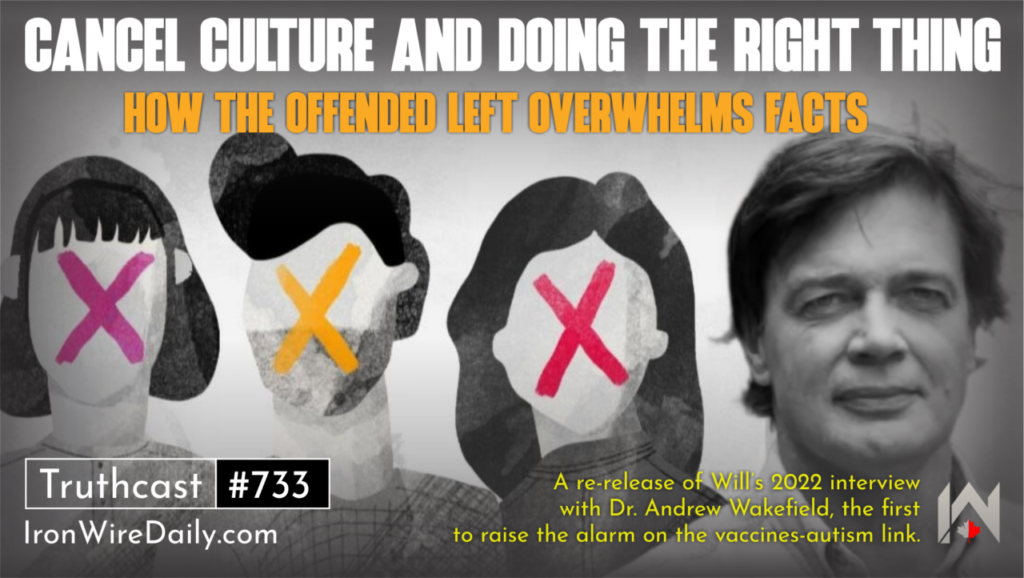
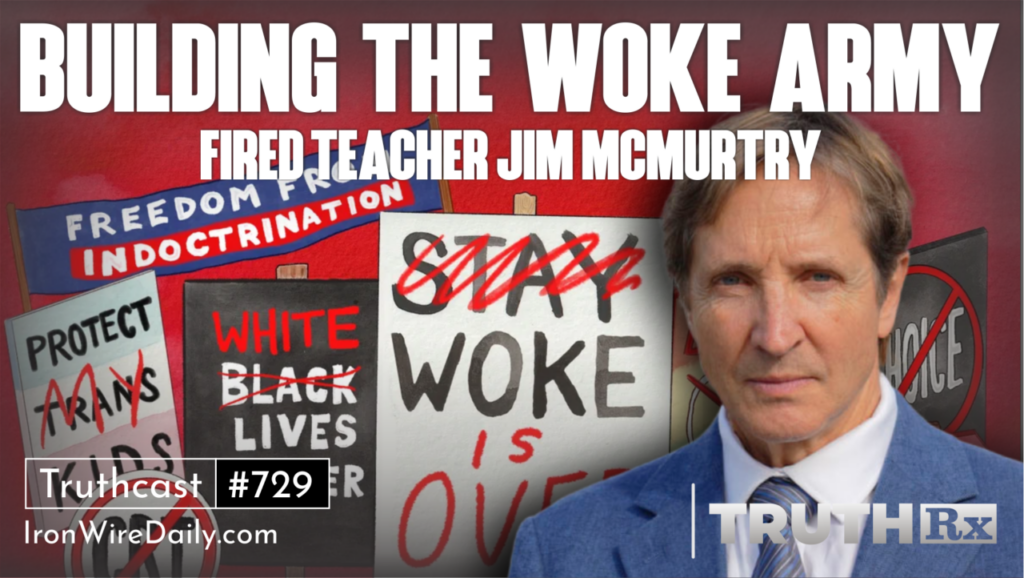
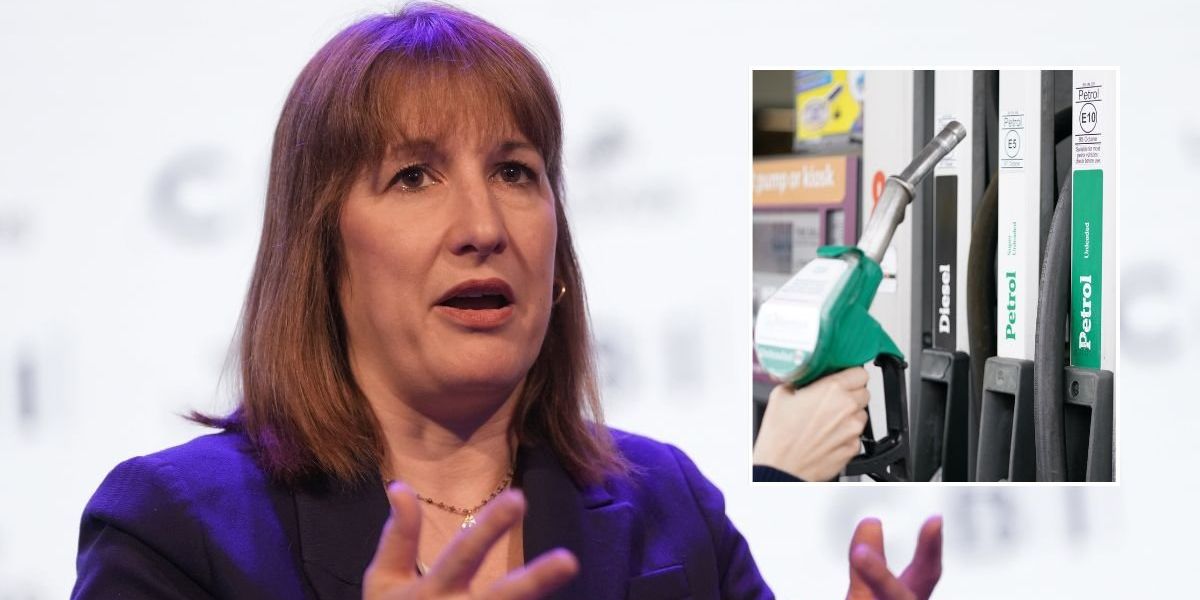

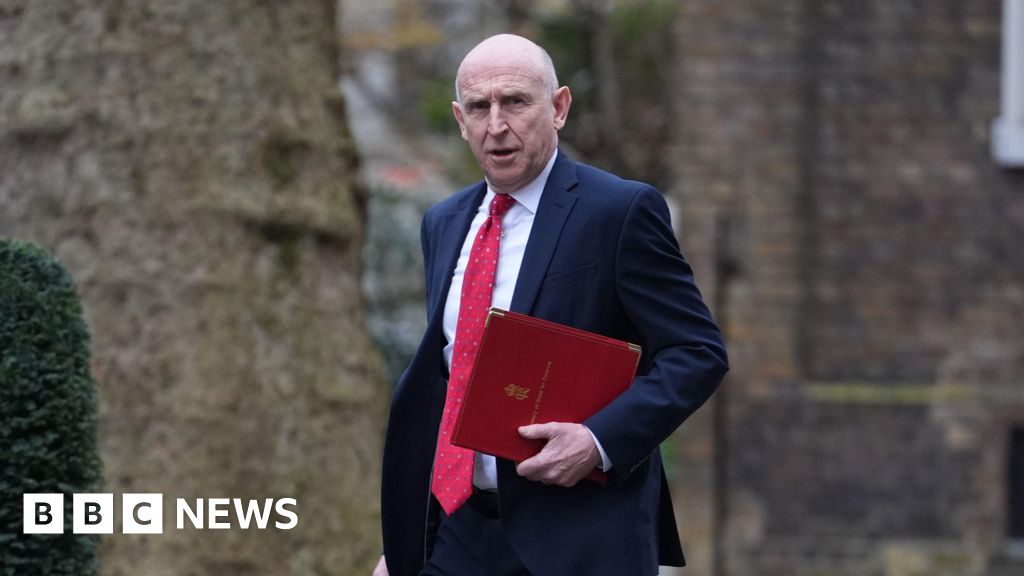

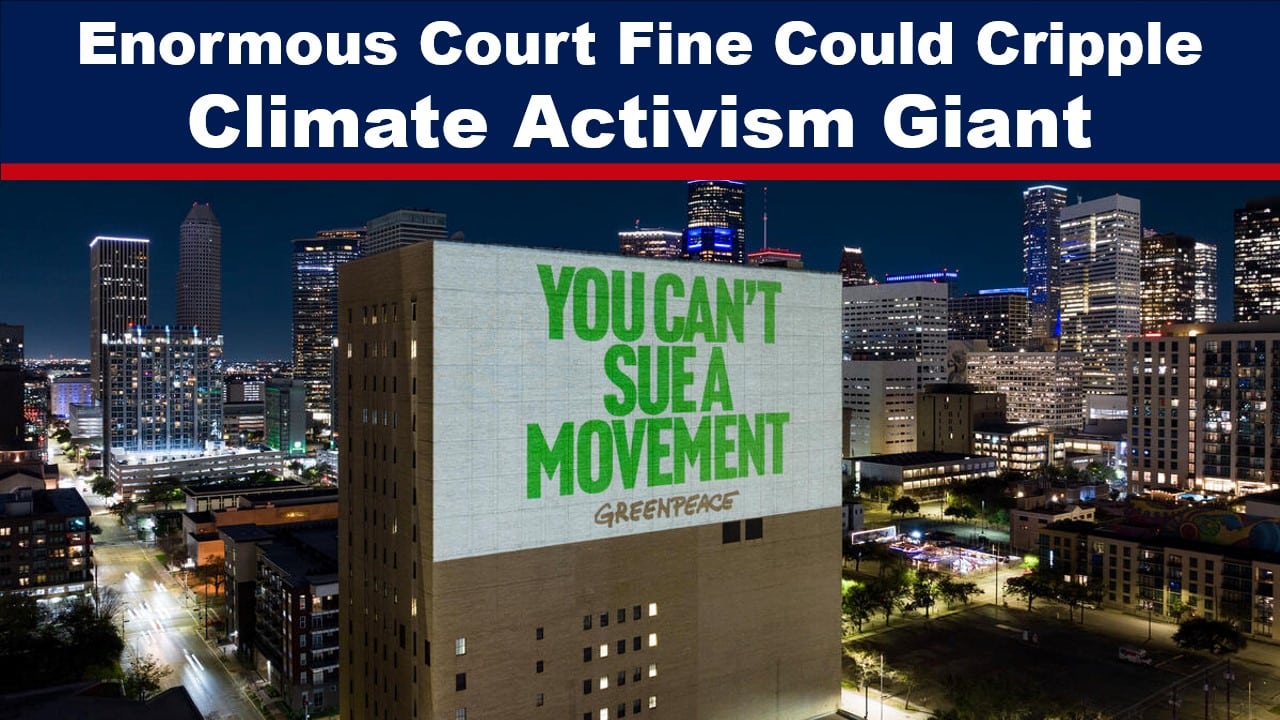
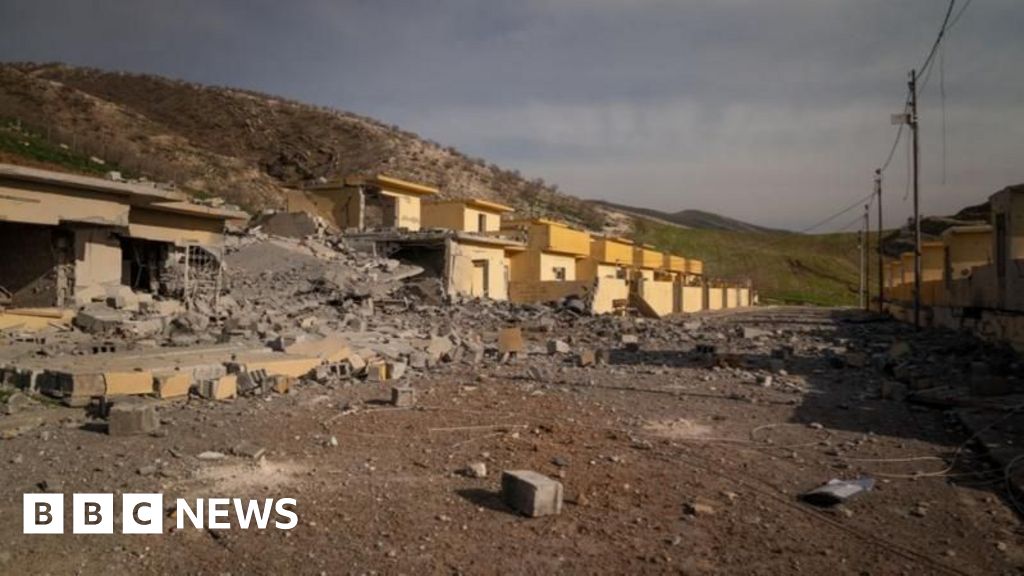
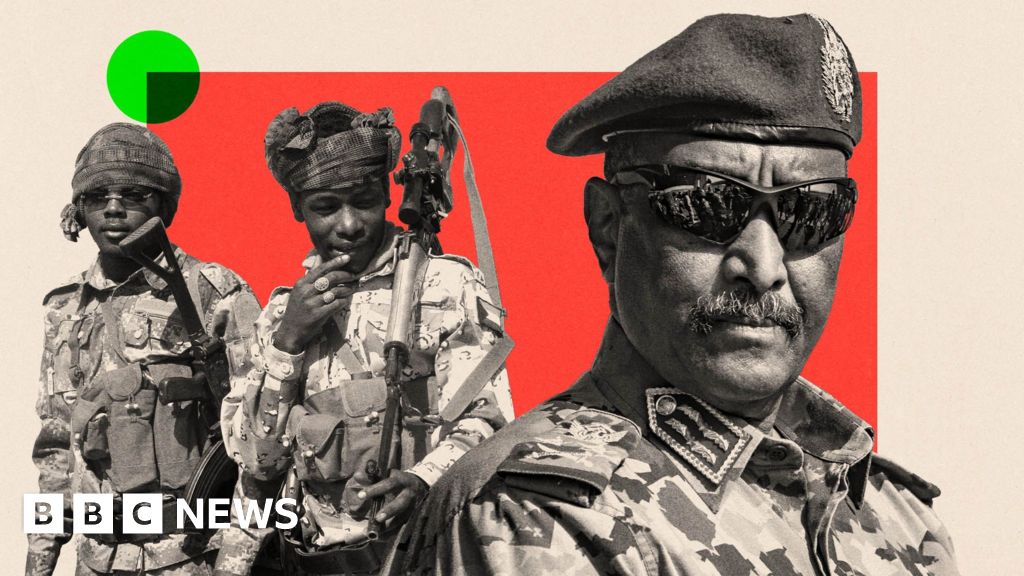



the biggest problem with the modern western world is the over all lack of moral compass, this was done by design, remember the western world installed Communism in China & at the same time through Rockefeller’s & others back in the day not only pulled the bait & switch in medicine painting the herbalist as quacks & selling their white lab coat petrochemical synthetic drug pushers as real doctors & medicine, but undermined the moral fabric of western Christian society with the promotion of Atheism & Science as the intelligent mans religion.
but when you look at the Christian Bible not as a religious text but as the efforts of the best thinkers of the day to create a product for a non scientific culture that encompasses the fundamental mathematical laws of the universe, would lift the world out of barbarism & teach the individual how to best lead an upstanding moral life, thus the modern western world was founded on these Christian morals & when the majority agree to raise their families by these principals you have shining nations of law order & morality, with little corruption in government & straight thinking ethical & moral people (the nations that still existed when I was a child) in the early 70’s
but the intentional introduction of these destructive ideologies & beliefs was our fist brain washing, but the bible tells of this & how it will happen, that the majority will seek self gratification over honesty & integrity & their populations will be turned over to a reprobate mind with every thought being evil & publicly celebrating every abomination.
the good thing is we merely need to wake up from are woke stupor & purge our indoctrination centers & start teaching morality, ethical & moral responsibility in the schools as oppose to celebrating ones sexual gender of the day in an exercise of name it & claim it mental illness.
so again there is hope but the majority need to rise up & put an end to it in a moral & ethical way, once we regain our moral standing we can then demand other nations abolish such ideologies & regimes if they want to peripatetic in a prosperous upstanding free world.
remember the seeds of our distraction were intentionally seeded by those looking to profit from greed, corruption & control of others & they established the long standing regimes of China & the USSR as our enemy of focus to keep us preoccupied as they dismantled our moral fabric one thread at a time.
Read Tragedy & Hope it lays out in detail what has been done to all our nations by those who seek power, control & profit.
https://archive.org/details/TragedyAndHope_501
the problem I find is the current white TV bound Canadians could care less about what happens in China, so long as they get their cheap goods uninterrupted.
Most people know these human rights atrocities are happening but could care less as long as it does not effect them.
it would be really beneficial if Canadians would take a stand & boycott all “Made In China” products throwing shock-waves of surplus into the Globalists international supply chain, something that large starting from a moral grass roots effort would just snow ball & the regime would have no choice but to go underground.
to begin with you need to remember the treasonous secret deals made back in the late 80’s when the NWO was carving up their version of the future.
the agreement was to give China world manufacturing (the belt & road initiative) in exchange they agreed they would not advance geographically or militarily.
they have violated both of those terms with their fake islands in the South China Sea & with their current state of military & must be kicked out of the WTO & go back to their 1980 status of a “billion strong” in which their workers would get fed a rice ball a day & it would take a years work for the average china-man to save enough just to buy a transistor radio.
they essentially need to be put back in the dark ages & any country offering aid to them should also be cut off from world trade & have sanctions placed on them.
you offer them one way out for them & their people, that is to abolish the communist party & its ideology, hold open transparent elections for their people (in which no person with ties to the current or previous regime can run the election or run in the election for any position) & the regime must face international tribunals for their crimes against humanity.
now all we need is a nation with influence to have the balls to take a stand & get the ball rolling.